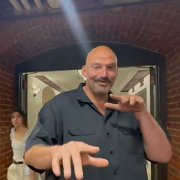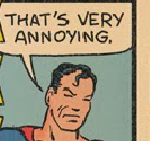|
6] If a lawyer knows that the client intends to testify falsely or wants the lawyer to introduce false evidence, the lawyer should seek to persuade the client that the evidence should not be offered. If the persuasion is ineffective and the lawyer continues to represent the client, the lawyer must refuse to offer the false evidence. If only a portion of a witness’s testimony will be false, the lawyer may call the witness to testify but may not elicit or otherwise permit the witness to present the testimony that the lawyer knows is false. [7] The duties stated in paragraphs (a) and (b) apply to all lawyers, including defense counsel in criminal cases. In some jurisdictions, however, courts have required counsel to present the accused as a witness or to give a narrative statement if the accused so desires, even if counsel knows that the testimony or statement will be false. The obligation of the advocate under the Rules of Professional Conduct is subordinate to such requirements. See also Comment [9]. [8] The prohibition against offering false evidence only applies if the lawyer knows that the evidence is false. A lawyer’s reasonable belief that evidence is false does not preclude its presentation to the trier of fact. A lawyer’s knowledge that evidence is false, however, can be inferred from the circumstances. See Rule 1.0(f). Thus, although a lawyer should resolve doubts about the veracity of testimony or other evidence in favor of the client, the lawyer cannot ignore an obvious falsehood. [9] Although paragraph (a)(3) only prohibits a lawyer from offering evidence the lawyer knows to be false, it permits the lawyer to refuse to offer testimony or other proof that the lawyer reasonably believes is false. Offering such proof may reflect adversely on the lawyer’s ability to discriminate in the quality of evidence and thus impair the lawyer’s effectiveness as an advocate. Because of the special protections historically provided criminal defendants, however, this Rule does not permit a lawyer to refuse to offer the testimony of such a client where the lawyer reasonably believes but does not know that the testimony will be false. Unless the lawyer knows the testimony will be false, the lawyer must honor the client’s decision to testify. See also Comment [7].
|
|
|
|

|
| # ? Jun 3, 2024 15:47 |
|
Note that: "What can an attorney do when their client admits guilt to them?" and "What must an attorney do if their client tells them they're going to commit perjury?" are entirely different questions with nearly opposite ethical considerations.
|
|
|
|
Yeah this is legit law school exam territory. Tough issues
|
|
|
|
Szurumbur posted:The questions were entirely serious, and entirely hypothetical - thank you for taking the time for such an extensive answer! Generally speaking, though, before entering a contract with a client you can review the case and decline representation, right? It'd be silly otherwise, but who knows - I imagine it's different for publicly appointed attorneys, of course. You're welcome, looks like you asked a good question too. Like said previously, if court appointed yes, if approached no. However, in my jurisdiction the defendant has a right of free choice of appointed counsel, so the defendant can quite literally ask the police (if arrested) or the court (if the indictment has been accepted) to appoint a particular attorney. As a courtesy, the attorney is asked first, particularly if they had no knowledge of the appointment (usually the atty requests it), but if appointed - and you usually are unless you have a good reason not to - you are now the public defender of this client paid by the state to do your job. As for the second, accepting a case if you have reason to believe you won't be able to do your job because it's too far out of your field of expertise, you are obligated under ethical rules to decline. However, important exceptions: if the client is made aware and still insists, and if it's criminal law. In my country, law school is a five year master's degree where a mandatory year is spent learning theoretical and practical criminal law and procedure. If you have a license in my country, you are supposed to be qualified as a defender. euphronius posted:6] If a lawyer knows that the client intends to testify falsely or wants the lawyer to introduce false evidence, the lawyer should seek to persuade the client that the evidence should not be offered. If the persuasion is ineffective and the lawyer continues to represent the client, the lawyer must refuse to offer the false evidence. If only a portion of a witness’s testimony will be false, the lawyer may call the witness to testify but may not elicit or otherwise permit the witness to present the testimony that the lawyer knows is false. Yup, this is some difficult stuff to navigate. Like I previously mentioned, we have an interesting rule where the defendant can't perjure himself - the defendant is under no obligation to tell the truth to the police or the courts and can not be criminally tried for lying, unless it is to frame someone which is a different crime. Although, obviously getting caught lying is in real terms going to hurt during sentencing. The important thing is that while defendants are granted a special exemption here, their counsel is not. So if I were to aid in lying to the court in any way, offer corroborating evidence (I know to be false) or support/encourage those statements, etc. I'd be guilty of accessory to perjury even though the defendants perjury is not criminal. The protection does not extend to counsel. Trust me, in practical terms this gets plenty interesting. Of course, the less ethical defenders may try and get away with some poo poo and might for a while, but personally I subscribe to the whole "if you do something wrong, it'll gently caress you eventually" and yeah, so far so good.
|
|
|
|
A few other things beyond the great points already mentioned. There is a big difference between "innocent" and "not guilty." "Innocent" is someone who has nothing to do with a situation or who didn't do one thing wrong. "Not guilty" is when the government can't make their case. It is extremely rare for an "innocent" person to be in criminal court. TV and the news would make you think it happens all the time, it just doesn't. My county does nearly 3,000 drunk driving cases per year and at least as many other cases. The number of truly innocent people charged is minuscule and usually noticed early, prosecutors don't want to waste their time with cases they are going to lose. Now, there is a valid criticism that certain things shouldn't be criminal, there are inherent biases in who is charged, many of the crimes are crimes of poverty, etc. All valid. But from a purely objective standpoint, almost everyone factually did the thing they are accused of. A good defense attorney knows that getting into a case. The job is to make the state do a better job. If you get an obviously guilty person off because the cops violated the 4th amendment, they are going to remember that the next time.
|
|
|
|
Someone should probably go into the noisy withdrawal scenario, too. It's a nice bit of craft.
|
|
|
|
|
I'll take unethical* passive aggressive dick moves for 1000, please, Alex. *99.99% of the time.
|
|
|
|
blarzgh posted:And lemme tell you, the overwhelming majority of criminal defendants are guilty. Can you break this down further? It seems like a hot take at first, but are you talking about actual trial cases or are you including the 90+% that are plea bargains. Are you considering the defendants social economic status when they plea bargain?
|
|
|
|
The Gardenator posted:Can you break this down further? It seems like a hot take at first, but are you talking about actual trial cases or are you including the 90+% that are plea bargains. The vast majority of people charged with criminal charges have committed a crime. Maybe not the one they're charged with, but there's very, very few that truly didn't do anything illegal. Now, that might mean that we criminalize too much, and a lot of crimes are crimes of poverty, or that there is unjust and uneven policing among different communities. But factually, just about everyone has broken the law in one way or the other. Somehow, it's sort of more comforting than the alternative. Would you want 1 in 10 people being charged with crimes when they are truly innocent? Thank goodness it's less than 1% of all defendants.
|
|
|
|
Pook Good Mook posted:A few other things beyond the great points already mentioned. When you say that there's a difference between "innocent" and "not guilty," is there a LEGAL distinction or is this more of a terminology thing? And by that, I mean what about a scenario where new evidence is found down the road, or maybe the evidence that a person was "innocent" was later found to be faulty. Can the person that was ruled "innocent" be put back on trial, or are they free and clear forever?
|
|
|
The Gardenator posted:Can you break this down further? It seems like a hot take at first, but are you talking about actual trial cases or are you including the 90+% that are plea bargains. Nice piece of fish posted:
What he's saying is that a very very small percentage of criminal defendants are in that "wasn't even there, you got the wrong dude" category. It happens but it's rare (if we take DNA exonerations as our marker, they would indicate that about 5% of convictions are truly wrongful). The other 95% of the time they did the thing. Even if they did the thing, though, they might have some kind of legally valid excuse or explanation that might help reduce their sentence or mean that a lesser charge or no charge is appropriate, etc. Pook Good Mook posted:
Statistics from DNA exonerations indicate it's probably more like about 5%. Of course, that isn't conclusive, partly because many of those were older convictions from before modern scientific methods. DaveSauce posted:When you say that there's a difference between "innocent" and "not guilty," is there a LEGAL distinction or is this more of a terminology thing? In America there's a procedure called post-conviction relief for people who were wrongfully convicted, lost their appeals, and later want to challenge their conviction. For those who were found innocent there's a constitutional concept called "double jeopardy" that comes into play: https://en.wikipedia.org/wiki/Double_jeopardy Hieronymous Alloy fucked around with this message at 20:33 on May 9, 2019 |
|
|
|
|
DaveSauce posted:When you say that there's a difference between "innocent" and "not guilty," is there a LEGAL distinction or is this more of a terminology thing? It's the words I use, but the concept is universal among criminal attorneys (in my experience). If you find new evidence that makes a person legally not guilty after they've been convicted than the hope is that they are released after an appeal (although this system is REALLY slow and tends to favor finality of decision and really could be changed for the better). These are the news stories you see pretty frequently of people (usually men) being released after 17 years into a life sentence or something. If someone is found not guilty but new evidence makes them guilty they aren't retried because it would be double jeopardy. At least, not retried for the same crime. If you tried someone for murder and they were found not guilty but then later find evidence showing that they were selling guns or something they could be tried for that crime only.
|
|
|
|
Correction: I was wrong above. The overall best estimate for the U.S. wrongful conviction rate, based on the rate at which previously convicted people have been exonerated based on DNA evidence, is 11.6 %. quote:This study extends research on wrongful convictions in the U.S. and the factors associated with https://www.ncjrs.gov/pdffiles1/nij/grants/251115.pdf Sp roughly one time in ten the person convicted is actually innocent. (Other studies put the number as low as 5%, or about one time in twenty). Or more precisely, that was the approximate percentage error in convictions which has presumably been corrected by DNA evidence. Presumably, now that we have DNA evidence, it's all fixed now. Note also that this rate is probably very different for different crimes. I'd be surprised if there are any significant number of wrongful DUI convictions at all (breathalyzers work). Hieronymous Alloy fucked around with this message at 20:56 on May 9, 2019 |
|
|
|
|
Pook Good Mook posted:It's the words I use, but the concept is universal among criminal attorneys (in my experience). Interesting, my understanding of double jeopardy was that new evidence was grounds for retrying someone. Not sure why I thought that, something about it being a different trial even though the crime is the same? But to go back to the innocent vs. not guilty, is "innocent" a label someone can walk away from court with, or is it strictly "guilty/not guilty?" Or I guess are we saying that "innocent" and "not guilty" are functionally equivalent in the eyes of the law?
|
|
|
|
DaveSauce posted:Interesting, my understanding of double jeopardy was that new evidence was grounds for retrying someone. Not sure why I thought that, something about it being a different trial even though the crime is the same? To me, "not guilty" is a legal finding the same as "guilty." Some states might call it "innocent." To me they're just words illustrating the general principle that not everyone who is found "not guilty" is truly "innocent."
|
|
|
|
Pook Good Mook posted:The vast majority of people charged with criminal charges have committed a crime. Maybe not the one they're charged with, but there's very, very few that truly didn't do anything illegal. This is a practical consequence of the law enforcement system, and is sadly probably also one of the greatest contributors to miscarriages of justice: If you're picked up by the police it's because you've done something that got their attention, and that thing is usually criminal, so the vast majority of cases that make it through investigation into indictment have been thoroughly weeded and sorted into prosecutable criminal cases. Therefore, all indicted individuals are guilty of something? Maybe. It certainly leads to shifting the power imbalance further, into downright "if in defendants chair -> strike one" because you must have done something wrong to even get there. Factoring out plea bargains conviction rates are very very high. Is that because only criminals get there or because it is assumed the police do their homework and only guilty people are assumed by the courts to see the inside of a courtroom, thereby potentially causing innocent convictions? Your mileage may vary. For most bog standard routine cases I'd agree with Pook Good Mook. The vast majority of people actually charged with a crime are extremely likely to be guilty. For edge cases, cases where there are many different factors determining guilt, weird cases... I dunno. Unfair advantage to the prosectution is definitely there, but at the same time that's where you have an opportunity to actually get acquittals. DaveSauce posted:When you say that there's a difference between "innocent" and "not guilty," is there a LEGAL distinction or is this more of a terminology thing? A person may be factually innocent and legally guilty, that I think is called a miscarriage of justice. A person may be factually guilty and legally innocent, this is called a failed prosecution. The colloquial use of the word "innocent" doesn't really cover the various possibilities well, so I would say a clear no to there being a legal distinction between the terms as you used them, but there is a pretty clear distinction between the two situations to be sure and I'm not sure what you'd really call that other than what I said? Probably in a book somewhere, and I loosely translated from my language anyway so it's probably completely wrong in english (our "miscarriage of justice" is actually called a "justice murder"). Pook Good Mook posted:If someone is found not guilty but new evidence makes them guilty they aren't retried because it would be double jeopardy. At least, not retried for the same crime. If you tried someone for murder and they were found not guilty but then later find evidence showing that they were selling guns or something they could be tried for that crime only. Here's a fun one, I've talked about this previously but here's a great example of differences between the US and my supposedly enlightened socialist country: If the police uncover new evidence or you confess after your acquittal, in my country double jeopardy absolutely does not apply to this and the prosecution can apply to reopen the case if: You've done something criminal to affect the case (obstruction, witness tampering etc) and this becomes known after the fact, or there is reason to believe you're guilty of the crime itself due to new evidence, and the crime carries a penalty of more than three years prison time. In that case, boom, you're back to square one and it'll be treated like any other criminal case. It's very very rarely done and there's a whole rigmarole to get it through reopening, but it's absolutely an option. Sometimes it's actually great to be american.
|
|
|
|
For extra special majick funtime, compare these systems with the Japanese criminal legal system.
|
|
|
|
|
Does that mean it would be advantageous to bribe the jury to acquit you if charged with murder because obstruction of justice or whatever crime that would be would carry a much lighter sentence than murder when you're caught for that later?
|
|
|
|
DaveSauce posted:Interesting, my understanding of double jeopardy was that new evidence was grounds for retrying someone. Not sure why I thought that, something about it being a different trial even though the crime is the same? It is grounds (now) in the UK. In the US isn't there a thing where it doesn't apply if you're retried federally for something thats also a state crime or vice versa? feedmegin fucked around with this message at 23:18 on May 9, 2019 |
|
|
|
feedmegin posted:It is grounds (now) in the UK. In the US isn't there a thing where it doesn't apply if you're retried federally for something thats also a state crime or vice versa? Correct, the dual sovereign exception allows for what you're talking about and vice versa.
|
|
|
|
Discendo Vox posted:For extra special majick funtime, compare these systems with the Japanese criminal legal system. Is it still essentially torture someone until they either confesses or some nominal period of time passes? Mr. Nice! fucked around with this message at 00:17 on May 10, 2019 |
|
|
|
Discendo Vox posted:For extra special majick funtime, compare these systems with the Japanese criminal legal system. Yea everyone should read up on the head of Nissan that’s in jail in japan. Crazy stuff
|
|
|
|
DaveSauce posted:Interesting, my understanding of double jeopardy was that new evidence was grounds for retrying someone. Not sure why I thought that, something about it being a different trial even though the crime is the same? In California you can be found factually innocent beyond not being found guilty, but it is an additional process. It normally happens in wrong ID cases, often when someone's brother says they are them. It clears the arrest off and destroys all evidence that you were arrested and creates penalties for anyone bringing it up. It is really cool.
|
|
|
|
Our criminal justice system is so backward compared to the rest of the world. All these requirements and constitutional protections on the front end, but once you’re convicted...barbaric oubliette gently caress you time in every possible preventable way
|
|
|
|
The Gardenator posted:Can you break this [the overwhelming majority of criminal defendants are guilty] down further? It seems like a hot take at first, but are you talking about actual trial cases or are you including the 90+% that are plea bargains. (And you'll be able to afford your probation, and not get it revoked for being poor) Also what Pook Good Mook said, that we criminalize too much, and a lot of crimes are crimes of poverty, and that there is unjust and uneven policing among different communities. (But that 1% number is about an order of magnitude off) DaveSauce posted:When you say that there's a difference between "innocent" and "not guilty," is there a LEGAL distinction or is this more of a terminology thing? When we say a person is presumed innocent, what is meant is moral, factual and legal innocence. If you're a curmudgeonly (rear end in a top hat) judge and decide to instruct jurors that defendants are only presumed not guilty (and occasionally add, "a person can be found not guilty and still not be innocent of the crime charged") You're going to have 50 trial verdicts of guilt reversed, including a bunch of murders, rapes, and child sexual abuse cases. The attorney who got the reversals had a good analogy: The presumption of innocence presumes the glass is empty. The presumption of not guilty presumes the glass is not full. (Yes, TenementFunster, it was Barry) DaveSauce posted:And by that, I mean what about a scenario where new evidence is found down the road, or maybe the evidence that a person was "innocent" was later found to be faulty. Can the person that was ruled "innocent" be put back on trial, or are they free and clear forever? But: Pook Good Mook posted:... the dual sovereign exception allows for what you're talking about and vice versa. And maybe this term the Supreme Court will correct the interpretation that there is a "doesn't count between sovereigns" clause in the 5th Amendment. Phil Moscowitz posted:Our criminal justice system is so backward compared to the rest of the world. All these requirements and constitutional protections on the front end, but once you’re convicted...barbaric oubliette gently caress you time in every possible preventable way But...but... mah do as I say, not as I do Puritanism! But...but... mah Just World fallacy!
|
|
|
|
I refuse to believe that the Japanese legal system is any different from the Phoenix Wright Ace Attorney games.
|
|
|
|
joat mon posted:But...but... mah tax cuts! GIVE ME SOME CHON CHON
|
|
|
|
Szurumbur posted:If a lawyer defending a client in a criminal case knows that the client is guilty, can the client be abandoned on that grounds? I'm talking about a situation in which a client, unprompted, just confirms doing it (whatever that might be), but is willing to cooperate with the lawyer in every way. Let's look at this a different way: If a mechanic fixing a crashed car found out that the owner crashed it, can the job be abandoned on that ground? I'm talking about a situation in which a customer, unprompted, just confirms crashing the car, but is willing to cooperate with the mechanic in every way. If a doctor treating a patient found out that the patient contributed to their malady in some way, can their medical care be abandoned on that ground? I'm talking about a situation in which a patient, unprompted, just confirms they eat a lot of unhealthy food, but is willing to cooperate with the doctor in every way. The mechanic can still fix the car without unalterably obligating themselves to falsely testify the owner's insurance company that the owner did not crash the car, just as the doctor can still treat their patient without unalterably obligating themselves to falsely testify to the patient's insurance company that the patient has the arteries of a 25 year-old marathoning monk. joat mon fucked around with this message at 02:15 on May 10, 2019 |
|
|
|
I struggle to think of a theory where the Supreme Court (as currently constituted) finds a way to get rid of the dual sovereign exception. BUT I do think we are really really close to them undoing the jurisprudence around "civil" vs "criminal" vs "collateral" penalties. They had a case last year where Gorsuch and Thomas put up big billboards indicating they think the dichotomy is false and at least 3 of the liberals have indicated they agree. It would honestly be as big as Gideon for changing state criminal law and can't come fast enough. Often the civil and administrative penalties for convictions are significantly more harmful in the long-run than a criminal conviction. If you think a failure of the system is criminalizing poverty then there's a good chance you actually have a problem with civil penalties triggered by criminal convictions. No one loses their job because they're assessed fines. They lose their job because their driver's license is suspended because they had 3 equipment violations.
|
|
|
|
joat mon posted:the doctor can still treat their patient without unalterably obligating themselves to falsely testify to the patient's insurance company that the patient has the arteries of a 25 year-old marathoning monk. This reminded me of Trump's doctor.
|
|
|
Louisgod posted:I refuse to believe that the Japanese legal system is any different from the Phoenix Wright Ace Attorney games. Yes, kinda. There's a lot of detail I don't know, it's been too long since I looked at the system, but basically the whole apparatus is built upon the functional assumption that defendants are guilty, both procedurally and (far more importantly) culturally. Prosecutors and judges are are closely associated, and a not guilty trial severely damages ruin the career of either. Defense attorneys operate pretty much exclusively in the realm of technicalities and mitigating factors for sentencing. Confessions of guilt are sort of assumed upon accusation or arrest (though I don't know the details of that). The Ace Attorney series was basically a strong attack on the Japanese system's unfairness to defendants and cultural norms of deference to criminal prosecution. The underlying plot hook of the series, before the psychics and weird characters and whatnot, was "holy cow this defense attorney wins cases, and his clients are innocent! How unreal and fantastical!" The big antagonist of the first game was a corrupt prosecutor who would do anything to keep a good court recod, which was considered shocking. At the end of...one of games, I forget which, the huge climactic sea change event that basically defined the series was that the court was going to experiment with this radical thing called a "jury". The villain was an attorney who was trying to prevent it from happening because juries are unpredictable and jurors are morons (which, I mean, fair). Japan still doesn't have a jury system, and the conviction rate at trial is around 99.9%. The above's based on my rough recollection, I'm certain that on something awful of all places there's a whole subclass of japanese legal system expert goons available to correct my mistakes and tell us how superior it is to gaijin courts. Discendo Vox fucked around with this message at 03:46 on May 10, 2019 |
|
|
|
|
Nice piece of fish posted:If the police uncover new evidence or you confess after your acquittal, in my country double jeopardy absolutely does not apply to this and the prosecution can apply to reopen the case if: You've done something criminal to affect the case (obstruction, witness tampering etc) and this becomes known after the fact, or there is reason to believe you're guilty of the crime itself due to new evidence, and the crime carries a penalty of more than three years prison time. In that case, boom, you're back to square one and it'll be treated like any other criminal case. It's very very rarely done and there's a whole rigmarole to get it through reopening, but it's absolutely an option. Sometimes it's actually great to be american. This can theoretically happen under extremely limited circumstances in the USA, if a court rules that the original trial was a sham and you were never truly in jeopardy in the first place. It requires ironclad proof that you bribed a judge or something on that level, though. The retrial of mobster Harry Aleman is probably the best-known case of a court ruling that double jeopardy didn't apply because there was no true jeopardy in the original trial.
|
|
|
|
Pook Good Mook posted:I struggle to think of a theory where the Supreme Court (as currently constituted) finds a way to get rid of the dual sovereign exception. Now that is interesting. Over here in the land of mead and honey, we've actually gone the other way. Used to be that license suspension required a criminal conviction, but now there's solid statutes and doctrine on administratively recalling various licenses and permits often as a direct consequence of criminal investigation - note, I said investigation, not conviction - and this is not a criminal penalty and you have none of the rights of due process normally associated with criminal procedure. In practical terms, you can be under DUI investigation, accused of domestic violence, associated with a criminal's phone number, "observed" driving when you shouldn't be by a neighbour with a grudge, and the police can simply recall your driver's license, revoke your gun permits and come pick your guns up, the works. Don't really need to justify it much either. You have to lodge a civil complain against it and ultimately contest it in court at your own expense, and it's both prohibitively expensive and impossible to win. I know, cause I've tried a few of those. I had a case get straight up dropped all charges, and they still took the guy's permits and guns. poo poo, I had a guy talk to a cop while drunk and they took his driver's license a month later. Took me a year of documented sobriety tests before he got it back.
|
|
|
|
Re: double jeopardy chat, in my jurisdiction you can absolutely be tried again if new and substantial information comes to light, like if for instance you are tried and found not guilty of murder and then photographs come to light of you and your ex committing said murder and other nastiness. Hit the link if you want to be bummed out. Discendo Vox posted:I'm certain that on something awful of all places there's a whole subclass of japanese legal system expert goons available to correct my mistakes and tell us how superior it is to gaijin courts. My recollection is that a big part of Japan's high conviction rate comes from prosecutors dropping cases very often, very early, so if you don't have a confession or CCTV, you're basically not going to trial. Their death penalty is super hosed up though (imo). To quote our Lord and savior, Wikipedia posted:When an execution order has been issued, the condemned prisoner is informed in the morning of their execution. The condemned is given a choice of the last meal. The prisoner's family and legal representatives, and also the general public, are informed only afterwards. Every morning you wake up, not knowing if you're going to get that knock on your door, or if your last visit with your spouse will be your last, and it can go on for decades. Which is true for everyone always if you want to be an rear end, but you what I mean.
|
|
|
|
Whitlam posted:Re: double jeopardy chat, in my jurisdiction you can absolutely be tried again if new and substantial information comes to light, like if for instance you are tried and found not guilty of murder and then photographs come to light of you and your ex committing said murder and other nastiness. Hit the link if you want to be bummed out. It says right in the intro he was tried for perjury, not tried again for murder. Also: holy gently caress that jury was full of idiots. Blue Footed Booby fucked around with this message at 15:17 on May 12, 2019 |
|
|
|
Blue Footed Booby posted:It says right in the intro he was tried for perjury, not tried again for murder. Yeah, that's my point. I'm not American. Had this case occurred in my jurisdiction, he would have been tried again for murder.
|
|
|
|
Can an attorney refuse to take on a client?
|
|
|
|
lifts cats over head posted:Can an attorney refuse to take on a client? Generally yes, unless you're a public defender.
|
|
|
|
lifts cats over head posted:Can an attorney refuse to take on a client? Yes
|
|
|
|

|
| # ? Jun 3, 2024 15:47 |
|
The answer varies by country. England, Australia, and a few other countries have what's called the cab-rank rule, where if you're a barrister you can't turn down a client if you have the skills and resources to represent them competently and they're able to pay.
|
|
|


























